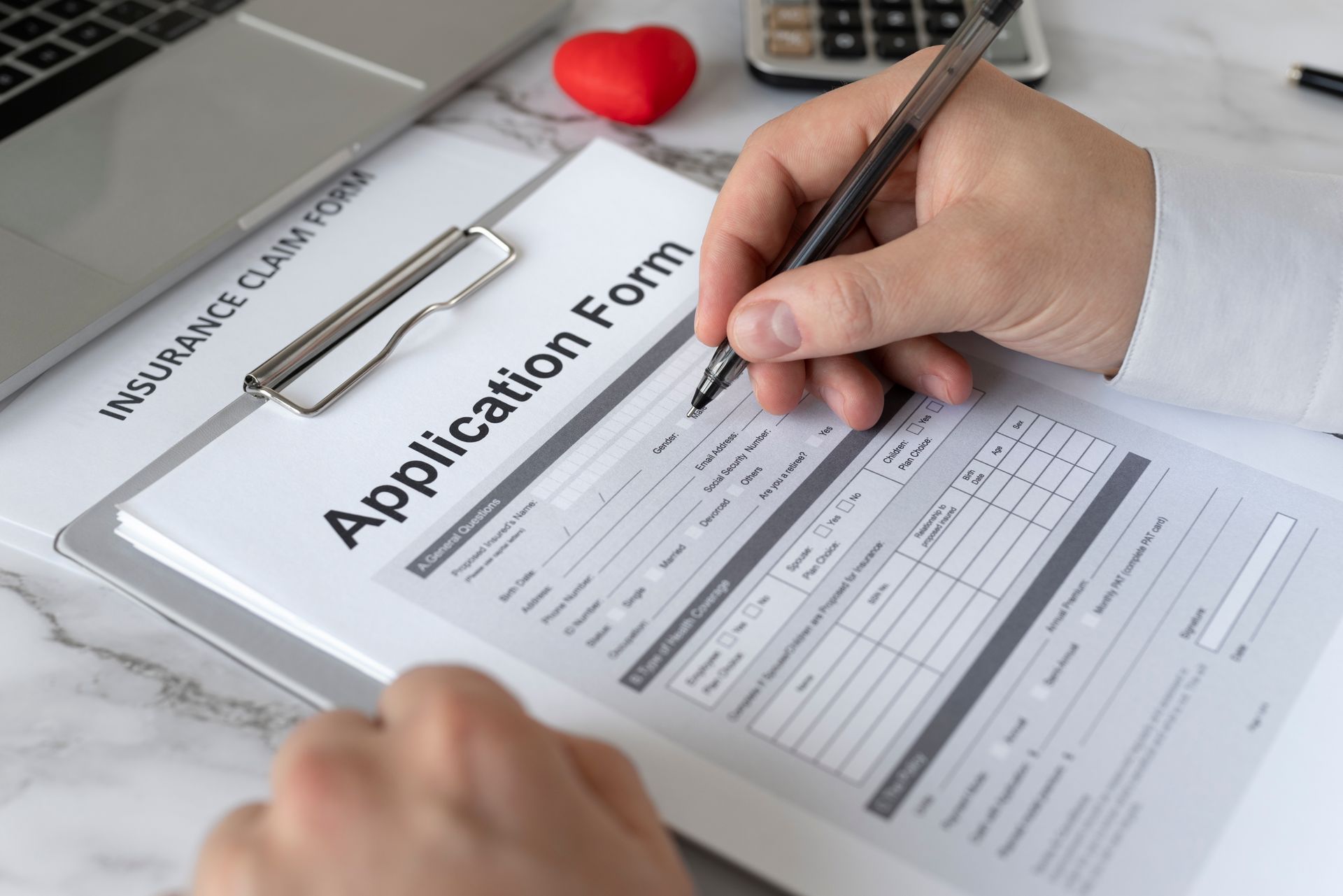Top Five Mistakes on Common Law Sponsorship Applications to Canada
Are you a Canadian citizen or Canadian Permanent Resident wanting to sponsor your common law partner for permanent residence in Canada? Read on, and avoid some of the most common errors we see with common law couples submitting their own sponsorship application.
Common Law Relationship Sponsorship Mistakes…
It is simply a fact that common law relationships are more difficult to prove for legal purposes than marriage. A legally married spouse has a marriage certificate which gives the start date and the legal validity of the relationship. Their marital status is perfectly clear as of a certain date. With a common law relationship, you have only a collection of various pieces of evidence that, when taken together, paint a picture of a committed relationship between two people, and it may not be clear when exactly you became a common law couple.
It follows that a Canadianspousalsponsorship application is usually quite straightforward to prove you are legally married, whereas a common law sponsorship application requires considerably more evidence to demonstrate the relationship that you have. On top of preparing the full application package properly, you also have to prove conclusively to the immigration officer that your relationship qualifies as a common law relationship, as the term is used by Immigration, Refugees and Citizenship Canada (IRCC).
Here are the top mistakes we see when common law partners prepare their own applications for permanent residence in Canada.

Common Law Partner Sponsorship Checklist – Mistakes to Avoid for a Smooth Application
1. Applying before you meet the definition of Common Law Partner Canada
What defines you as common law partners?
It’s important to ensure that you actually meet the legal definition of a common law relationship as used by the Canadian government before you file for permanent residence for the sponsored person. To be considered a common law relationship for immigration purposes, you must have lived together without any break for at least 12 months in a row. This means that if you have shared the same address for a year, but one of you spent a month visiting family members overseas at Christmas time – you don’t meet the common law definition and you should wait until you have 12 months of uninterrupted time together to apply. Now, let’s say that you were both overseas visiting family for Christmas, together – because you were together, then your time together is uninterrupted and you can qualify as common law. The time you spent living together does not need to be inside Canada – but you do need to be together.
The question invariably arises – can we have any time apart under the rules for common law relationships? The short answer is “be careful in the first year” when you are building the base for your minimum 12 months of cohabitation. During that year, very short and temporary absences will not usually cause issues in establishing common law status. The rule of thumb is that you should be apart for no longer than 2 weeks at a time during the minimum one year of continuous cohabitation.
However, if you have already lived together for at least 12 months without interruption, and you can prove that – then it doesn’t matter if there are separations of longer periods after that; you may not be currently living at the same address due to, for example, work or education-related reasons or caring for a family member abroad. As long as your relationship continues, and you intend to re-unite when you can, then the federal government considers you to be common law for the purposes of a sponsorship application.
Now that we have established when you will be considered common law, ensure that every immigration form for both the sponsor and the principal applicant is signed AFTER that date. You are deemed to be making the permanent residence application for your common-law partner on the date that you sign the forms, so ensure that you qualify as common law as of that date. Of course, all the documents should be consistent with the information on your forms.
No, you can’t submit an application in advance of being eligible and then hope to qualify because you will meet the definition while waiting for your sponsorship application to be processed. You must be eligible to declare yourselves as common law on the day that you sign your forms, or you will be refused. In the event of a common law partner refusal, the sponsorship fee and the principal applicant processing fee will not be refunded.
Note that a common law relationship does not have the same meaning as a conjugal relationship. Common law requires that you have lived together, whereas a conjugal relationship requires a significant degree of commitment in an intimate, romantic connection with the other person, but there is no cohabitation requirement. In
Canadian immigration law, the category of conjugal partner is reserved for the situation where a Canadian citizen or permanent resident is in a conjugal relationship with a foreign national but they cannot live together for reasons outside their control, usually due to immigration or other legal restrictions. It is a very tough category to prove.
2. Failing to prove 12 months consecutive cohabitation
The primary defining characteristic of a common law relationship is that you have lived together at the same address for at least a year. Therefore, you need to include evidence with your application that shows both of you at the same address for more than a 12-month span of time. What can be used as proof of cohabitation? You should provide some kind of evidence that shows both of you at the same address with a date that is more than 12 months old, as well as evidence you are still living together at the time you submit your application. If you have moved multiple times during the year, you should include supporting documentation that links both of you to every address that you have lived at together.
What if you were travelling in a van for the year – how do you prove you are cohabiting as common law partners then? Well, it happens! But most of you who travel in a van, also seem to document your travels on some kind of public forum – so that can be useful proof of where you were, what you were doing, and who you were with on any given date. If you are currently in your van and you are planning for your common law sponsorship application, now is the time to start making campground bookings in both names, stop at a hotel or hostel from time to time (in both names), and request paper invoices for services that you might utilize along the way. But really, it is going to be difficult for you to adequately prove you meet the common law test on your own – if this is your situation, please make sure that you engage with a professional regarding your application.
Now, for a quick test of your recollection thus far: “How long do you live with someone before they become your common law partner?” You know the answer is 12 months – just make sure that you include enough evidence to prove it in your application!
3. Not including a Statutory Declaration of Common Law Union
What is a Statutory Declaration of Common Law Union? This is a specific form the Canadian government uses for common law partners to declare the details of your common law relationship for immigration purposes in front of a public official – the IMM 5409 form. It is a required form to include with most applications if you are in a common law relationship, but for some reason it is not on the Document Checklist as a required form for a Common Law Sponsorship. However, we strongly recommend you include it on a sponsorship application and ensure that it is properly completed. For details on how to properly complete this form, you can review our Statutory Declaration of Common-Law Union (IMM 5409) Instruction Guide .
Note: if you have clicked on the form link above and see the “Please wait” message, we encourage you to read our post about how to properly open IRCC forms.
4. Failing to keep a copy of what you have submitted to IRCC
We have seen this many times over the years. It is critical to keep a full copy of the final package you submitted for your common law partner sponsorship application, including every signed and dated immigration form, and all of the supporting documents that you uploaded. If you are preparing your Common Law Sponsorship application solely on your own, you are unlikely to submit enough evidence to make your case strong enough for IRCC to approve it without asking for more information. When you get a request from IRCC to provide them with additional evidence, you need to be able to refer back to the evidence you have already submitted in order to determine what more you can provide, and what issues might be outstanding.
It is also possible for portions of your application to be lost at IRCC, or to be overlooked by the officer. You need to always be able to prove exactly what you sent – all the forms and all the documents – and exactly when they received it.
This instruction is even more critical now that all Common law partner sponsorship applications are submitted online. Once you submit that application, everything you have submitted disappears on your end. It is imperative to keep screenshots of online forms and organize your PDF forms, support docs and proof of relationship in a way that ensure you have a record of exactly what you submitted to IRCC.
5. Responding to an IRCC request for more information without consulting a professional
If you have received a request for more information from IRCC regarding the application you have submitted for Common Law Sponsorship to Canada, we strongly recommend that you
consult with a professional before responding. A straightforward request like an updated passport is a simple matter to address, but if you are being asked to provide additional evidence of your relationship, this is an emergency. This is called a procedural fairness letter and if you do not respond with sufficient evidence to convince the officer that you meet the legal test required, your common law sponsorship application will be refused. Obviously, this will be a huge set-back on the road to permanent residence for your common law partner.
If you did not fully understand the body of evidence that should have been provided with your initial permanent residence application, it is not likely you will understand the further relationship information being requested by IRCC in order to successfully respond to a procedural fairness letter on your own. An officer is not going to just take your word for it when conducting their evaluation of your common law relationship – you need evidence that meets a particular standard! The best thing you can do is to get professional advice on your whole sponsorship application to obtain help to rescue the application before it’s too late.
Contact our office to meet with an immigration representative experienced in these cases and the types of supporting documents that IRCC would expect to see in your situation.
6. Applying under the wrong process
There are two different pathways available for sponsorship applications to obtain permanent residence for a spouse or common law partner. One is the Family Class, in which the application is processed overseas, and the other is the Spouse or Common Law Partner in Canada Class, which is processed in Canada. Each is available to sponsor spouses and common law partners (including same sex relationships) but each sponsorship class has different procedures, requirements and benefits. The pros and cons of each option go beyond the scope of this article, but please see our post regarding
Inland vs Outland sponsorship for a detailed explanation of these two pathways.
How long does a Common Law Sponsorship Application process take?
A sponsorship application for common law partners typically takes about 12 months from start to finish, assuming the application has been perfectly prepared. If your sponsorship application is returned as incomplete or refused altogether, you will lose several months as you prepare a fresh sponsorship application in order to meet the high standards required by Canada Immigration. Contact our office today to ensure that your family immigration situation is resolved quickly and efficiently, and ensure you succeed the first time you apply for permanent residence for your common law partner.
The Way Immigration has successfully managed thousands of Common Law Partner sponsorship applications since 2008. We also regularly consult with clients who run into problems the did not expect, because they submitted their own application and did not fully understand the legal requirements for success. Contact our Alberta immigration consultant today to ensure that your application is prepared properly and position from success from the very beginning.
Frances Wipf, RCIC, is recognized globally as an expert in Canadian immigration matters. She is licensed by the CICC to provide legal representation and strategic immigration insights. In practice since 2008, Fran has successfully guided thousands of clients to achieve their Canadian immigration dreams through a combination of realistic assessment, technical excellence, and honest advice.











